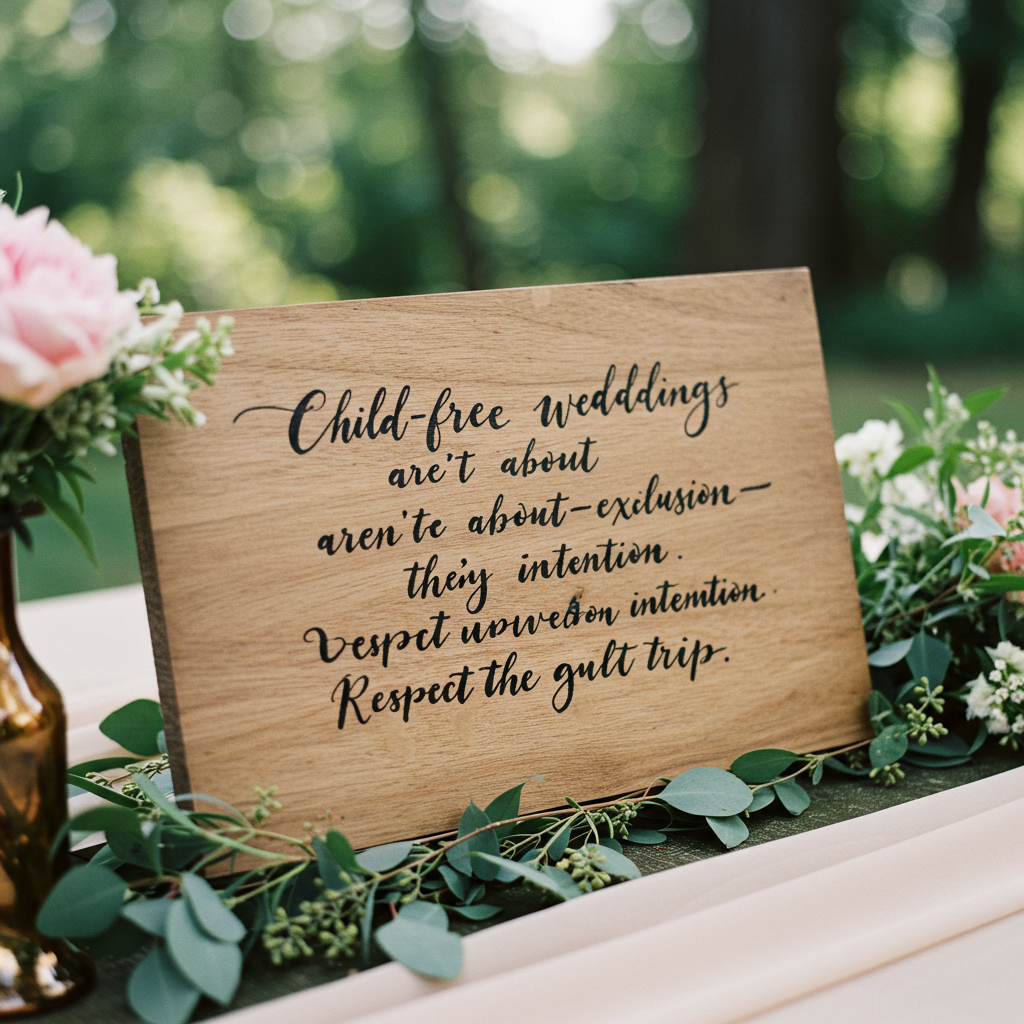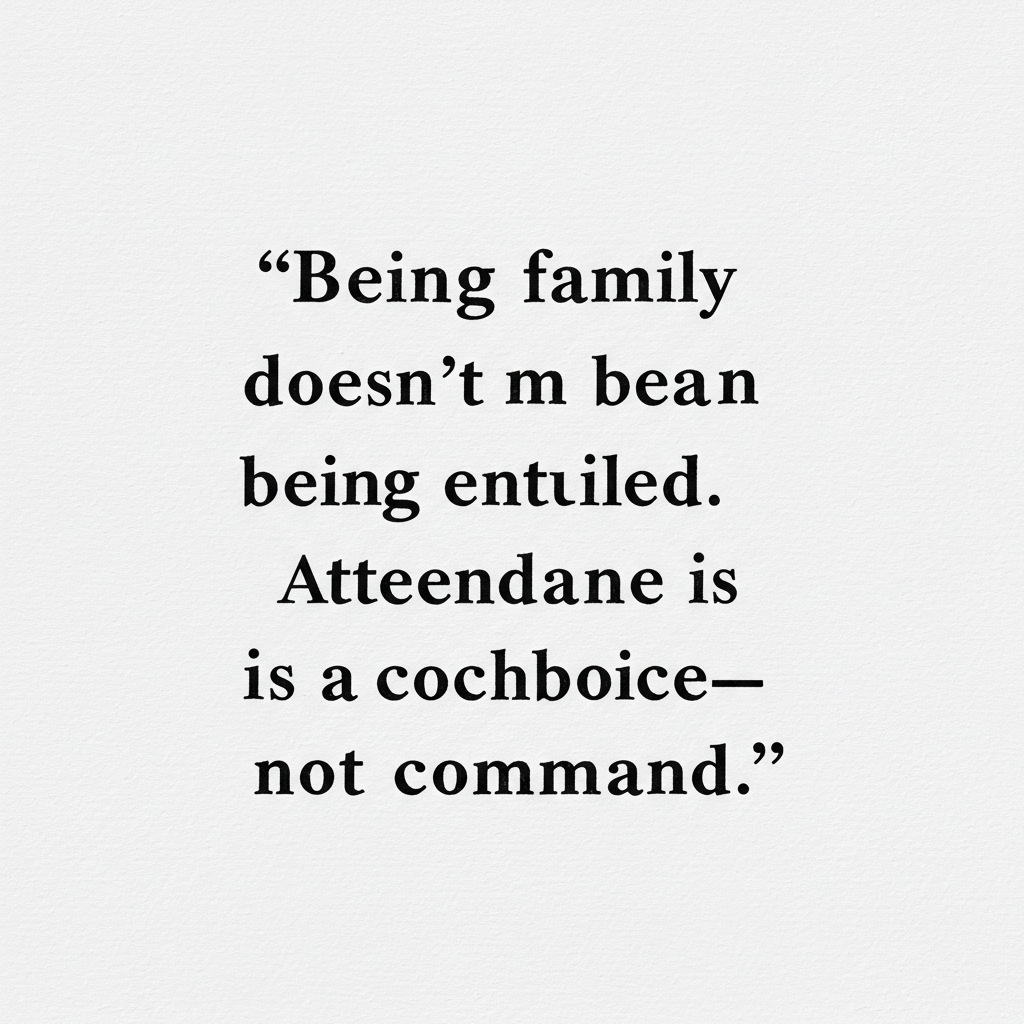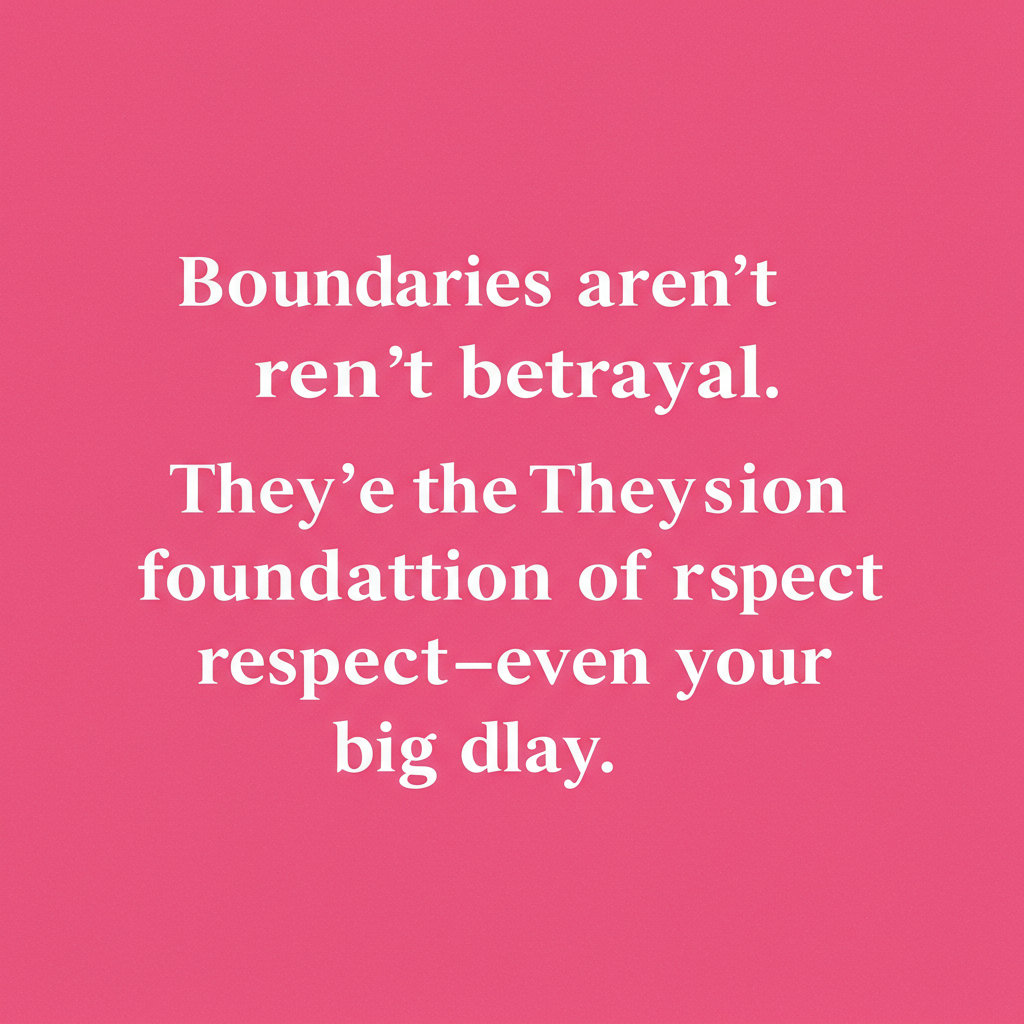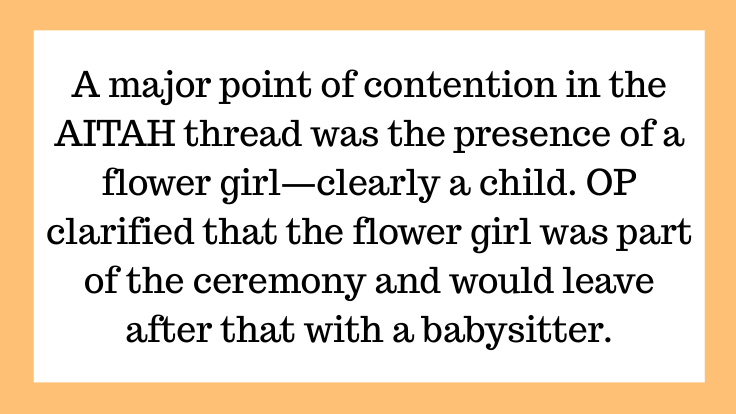Am I the Jerk for Not Letting My Sister Bring Her Kids to My Child-Free Wedding?
Weddings are often a joyous celebration of love, but they can also reveal deep family tensions—especially when the guest list sparks controversy. That’s exactly what happened in a recent AITAH post where one bride’s decision to host a child-free wedding led to a family feud and accusations of selfishness.
Let’s unpack this emotional rollercoaster of expectations, boundaries, and whether standing your ground makes you the bad guy.
The Dilemma: A Child-Free Wedding, A Furious Sister

The Original Poster (OP) and their partner decided to have a child-free wedding. Their reasons were clear: they wanted an elegant, adults-only atmosphere with no disruptions during vows or the reception. They communicated this well in advance and assumed everyone would understand.
Everyone did—except OP’s sister.
OP’s sister has two young children, ages 3 and 6, and immediately objected. She said she couldn’t attend unless her kids were included. When OP reiterated that no children were allowed (with the exception of one flower girl, chosen well before), the sister became furious. She called OP selfish and accused them of “prioritizing aesthetics over family.”
What started as a boundary turned into a battle.
Now OP is left wondering: Am I the jerk for refusing to let my sister bring her kids to my wedding, even if it means she won’t come?
Setting Boundaries at Life Events: Your Wedding, Your Rules

Child-Free Weddings Are Becoming More Common
In recent years, more couples have opted for child-free weddings to ensure a more focused, relaxed, and adult-centered celebration. Whether it’s to reduce costs, limit disruptions, or simply create a more formal atmosphere, the choice is increasingly normalized.
The keyword here is choice—and that’s what this comes down to. OP made a choice about their wedding, and the expectation is that guests either accept it or politely decline.
Exceptions Are Not Obligations

A major point of contention in the AITAH thread was the presence of a flower girl—clearly a child. OP clarified that the flower girl was part of the ceremony and would leave after that with a babysitter. However, the sister claimed this made the “child-free” policy invalid.
This is a common misunderstanding. A child-free wedding doesn’t mean zero children in any context—it typically means no kids as guests for the duration of the event. Exceptions for roles like ring bearers or flower girls are standard and don’t invalidate the policy.
Family Expectations vs. Personal Boundaries

Entitlement Doesn’t Equal Obligation
OP’s sister’s anger wasn’t just about missing a party—it was about feeling excluded. She argued that family should come first and that kids should be welcome in family spaces.
But this reasoning carries an expectation that family ties override personal boundaries. It suggests that being related gives someone the right to overrule someone else’s choices.
Reddit users overwhelmingly disagreed. The general consensus: Being family doesn’t entitle someone to rewrite your plans.
Attendance is a Choice, Not a Right
Another important point raised was that OP wasn’t banning her sister—just setting conditions for attendance. The sister had the option to hire a babysitter or decline gracefully. Instead, she turned it into a personal attack.
Saying, “If my kids can’t come, I won’t come either” is a valid response—but using guilt, shame, or anger to force the host to change their rules crosses a line.
Weddings Are Stressful Enough—Don’t Add Guilt

Emotional Manipulation Isn’t Justified
Planning a wedding is stressful enough without added emotional pressure. OP already had to navigate vendors, budgets, venues, and logistics. Having to justify a personal boundary—repeatedly—to family can be draining and unfair.
Many commenters shared similar experiences, noting how child-free decisions were met with overreactions, threats to not attend, or behind-the-scenes drama. One even said:
“I had to remind my aunt four times that no, her toddler couldn’t attend. She called me a ‘wedding dictator.’”
Sound familiar?
Respect Goes Both Ways
Respecting boundaries is a two-way street. Just as OP respected her sister’s right to decline the invite, she expected the same respect in return for her decisions.
When boundaries are dismissed and replaced with accusations, it’s no longer about family—it’s about control.
What the AITAH Community Decided

Reddit’s ruling was almost unanimous:
Some of the top-voted comments included:
“You gave plenty of notice. If she chooses not to come, that’s her decision. You’re not excluding her—you’re setting a boundary.”
“Weddings are expensive and emotional. The least people can do is honor your choices on your big day.”
“One child in the ceremony doesn’t mean you’re breaking your own rule. You’re hosting a wedding, not a daycare.”
These comments echoed a core message: you’re allowed to plan your wedding your way. Being firm about a child-free rule isn’t cruelty—it’s clarity.
Final Thoughts: Boundaries Aren’t Betrayals

At the heart of this AITAH story is the question of whether setting boundaries makes you unkind. The answer? No.
Whether it’s about kids at weddings, expectations around holidays, or inheritance, one thing is clear: adults are allowed to set limits. And when those limits are communicated early and respectfully, they should be honored.
OP didn’t ban her sister. She just made a choice about how she wanted her wedding day to look and feel. If her sister chooses not to attend, that’s her decision—but it doesn’t make OP the villain.



